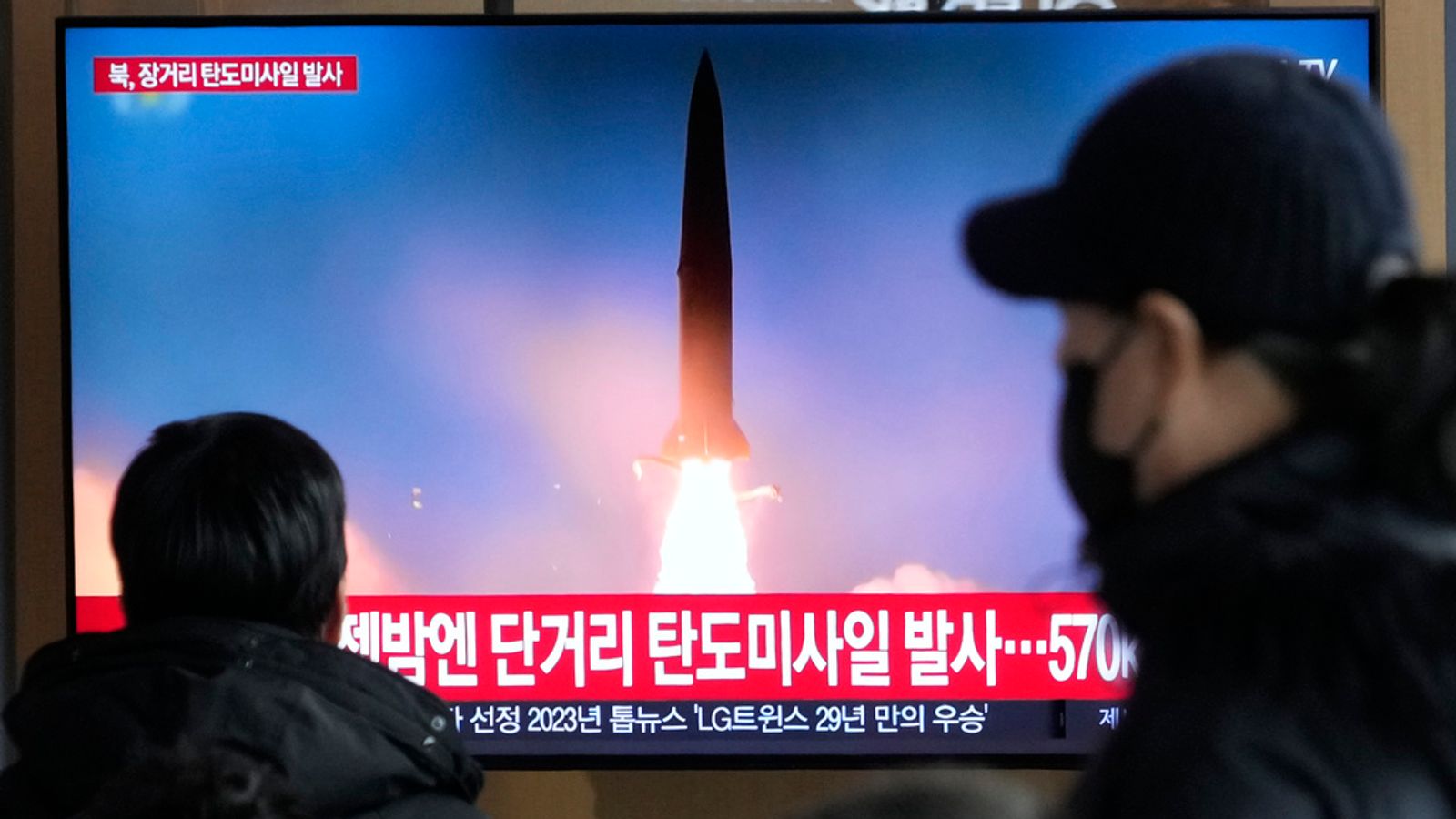North Korea has tested a long-range missile which is believed to have the potential to reach anywhere in the US.
South Korea, Japan and the US condemned the testing of the intercontinental ballistic missile (ICBM), which is the fifth one to be successfully launched by North Korea this year.
It comes after a meeting on Friday by US and South Korean defence officials over the use of American strategic weapons to deter North Korea’s military threat.
Washington also warned any nuclear attack by North Korea would lead to the end of the regime.
Japanese officials said the missile landed in the sea, west of its second-largest island Hokkaido.
Japan added the missile’s flight lasted 73 minutes, but has the potential to travel more than 15,000km (9,300 miles) – meaning it can reach anywhere in Japan and the US mainland.
The launch was made from an area near the North Korean capital Pyongyang towards the sea off the country’s east coast and flew about 1,000km (621 miles), South Korean military officials said.
South Korea’s National Security Council said it was a solid-fuel ICBM, which can be easier and safer to operate and more difficult to detect.
It called the launch a destabilising act which ignored international warnings and multiple UN Security Council resolutions.
South Korea’s President Yoon Suk Yeol has ordered the upgrading of the effective operation of “nuclear deterrence” by South Korea and the US, it added.
Read more from Sky News:
Miss France winner with short hair defended
BP pauses all shipments through Red Sea
Pakistan uses artificial rain to battle smog for first time
Monday’s launch came after North Korea fired a short-range ballistic missile on Sunday night, flying about 570km (354 miles) before falling into the ocean.
North Korea followed up that launch with a statement condemning the US for orchestrating what it called a “preview of a nuclear war,” including the arrival of a nuclear-powered submarine in South Korea on Sunday.
It added it has a sovereign right to operate a ballistic missile programme for its own self-defence and rejects the UN Security Council ban, which it says is a product of hostile US policy.
This story originally appeared on Skynews

